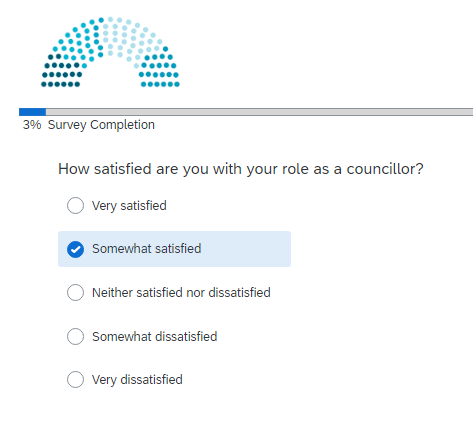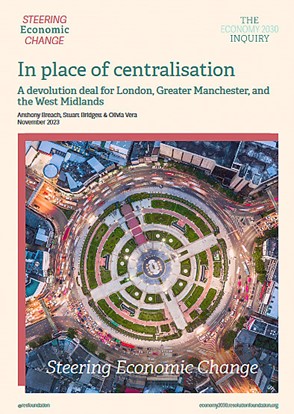
Chris Game
It’s little consolation to the ‘powers that were’ in Birmingham Council House, but the past several months’ headlines about “Europe’s Largest Local Authority” going bankrupt have done wonders for my personal online social networking. From the BBC and Financial Times to the World Socialist International Trotskyists, that headline has made us Brummies suddenly globally famous as citizens of ELLA.
I’ve been emailed by erstwhile colleagues and ex-students I’ve not seen or heard from for years, now back home in Australia and South Africa, Japan and Kazakhstan, wanting to know whether Birmingham really is Europe’s Largest Local Authority – like it boasts on its Website Awards page – and, if so, why didn’t I make more of it while they were students here.
Yes, they’re curious about the bankruptcy bit, which I also have to try to explain, but it’s the ELLA boast that really fascinates them – because they recall their travels around Britain and Europe, and clearly blame me for their not having been able to boast about temporarily residing in the continent’s LLA. The clever-dick ones even add, “What about Kent?” Or “Didn’t you say it was East Lindsey in Lincolnshire?”.
And they’re not wrong, of course. Take the real ‘biggies’. In population, Kent is nowadays just one of the ‘Big 3’ of the 36 non-metropolitan or shire counties – its 1,858,000 fractionally behind Essex and Hampshire, and all roughly half as large again as Birmingham City Council’s 1.15 million. However, those counties’ local governments are, of course, two-tiered – counties and districts, each responsible for different functions and services. And – spoiler alert – it’s single-tier or unitary authorities, responsible for providing all principal local government services in an area, that count here.
County councils provide services covering the whole county – education, adult social care, waste disposal, etc. More local services, like refuse collection, environmental health, and leisure facilities, are provided – as I’d certainly have pointed out – by, in Kent’s case, 12 smaller district councils.
Sounds straightforward, doesn’t it? In fact, it’s anything but, and, if you were a class of students, I’d have had to at least mention the bizarre distinctions between ceremonial and historic counties, Lord-lieutenants (Lords-Lieutenant?) and High Sheriffs. Suffice it here to stress that it’s the two-tier structure and the ‘county’ bit that bar these bodies from challenging Birmingham’s status as ‘Largest’.
We do, of course, have a West Midlands Combined Authority, headed currently by Mayor Andy Street, but that’s entirely different and its 18 local authorities cover a far larger regional area than the old West Midlands County Council that Margaret Thatcher abolished in 1986. It’s an increasingly important, and influential, regional and national voice, but definitely not a local authority.
And East Lindsey? I honestly can’t remember ever mentioning this. If I did, I’d guess it was to encourage some overseas students to visit Skegness, as somewhere ‘different’ but inherently English and off the proverbial tourist track. It’s a pleasant seaside resort with a rather splendid clock tower – which tells the time, unlike, for apparently a further several weeks, the UoB’s Old Joe – that probably happened then to be the largest town in England’s geographically largest local government district – East Lindsey – and five or six times the area of Birmingham.
We’ve fully established, then, that Birmingham’s ‘Europe’s Largest Local Authority’ claim has nothing to do with either population or geographical size, but everything to do with the UK’s uniquely large-scale, or ‘non-local’, local government structure and the gradual disappearance of devolution to more local units of government.
Put another way, it’s a question of NUTS. Yes, there’s plenty about our local government system that doesn’t make much sense – not least its sheer non-localness – but here we’re actually talking about the Nomenclature of Territorial Units for Statistics, which both sounds better in the original French and produces an easily memorable acronym.
It’s statistical shorthand for the EU’s hierarchical way of standardising the different ways in which the hugely varying EU states administratively structure their sub-central governments – regardless, if necessary, of the institutional reality. A statistical harmonisation exercise, therefore, rather than an aid to serious cross-national local government comparison.
The NUTS classification subdivides every member country into three principal levels, NUTS 1 to 3, to which large countries can add further levels by subdividing NUTS 3 into LAU (Local Administrative Units). Very roughly, then, the currently 92 NUTS 1s are major socio-economic regions or groups of regions of relatively larger states – Germany’s 16 Länder, France’s 14 Régions, Poland’s 7 Makroregiony. And the UK, were we still EU members, would have 12: West Midlands and the eight other English regions, plus Scotland, Wales and Northern Ireland.
The 240 NUTS 2s are basic regions or regional groupings for the application of regional policies – Austrian Bundesländer, Belgian, Dutch and France’s former Provinces – and in the UK 40 conveniently grouped counties, London ‘districts’, and in the West Midlands its seven boroughs.
The 1,164 NUTS 3s tend to be sub-divisions of regions, provinces, counties, or groupings of municipalities for specific purposes, rather than individual local authorities. But such is the UK’s exceptional non-local scale that it takes nearly one-sixth of that total (174), with many councils qualifying for their own, including all seven West Midlands boroughs.
Even forgetting the UK’s large slice, that 1,164 doesn’t sound that many for a whole continent, does it? Hence those Local Administrative Units – over 92,000 of them which constitute the overwhelmingly biggest columns in the main NUTS table. In our case LAU 4s would be the upper tiers of our traditionally two-tier system of county and district councils, and LAU 5s the lower tiers – or, rather, would have been, the two levels having since been merged.
I hate that LAU term. It’s misleading bureaucratese: a seriously disparaging label for what most European countries’ residents would first think of when asked to identify their elected local governments. To pick some examples: France’s LAU 4s were/are its nearly 35,000 Communes, Germany’s its 10,775 Gemeinden, Italy and Spain their 8,000 Comuni and Municipios – with, obviously, what we would consider mostly modest-sized populations to match.
At which point I admit my age and recall Mr Spock’s immortal response to Star Trek’s Captain Kirk: “It’s life, Jim, but not as we know it”. And yes, I know it was from a later song, rather than the TV series, but it fits. Because for a Brit those sizeable NUTS/LAU numbers could easily be described as representing “Real Local Government, Jim, but not as we know it.”

Chris Game is an INLOGOV Associate, and Visiting Professor at Kwansei Gakuin University, Osaka, Japan. He is joint-author (with Professor David Wilson) of the successive editions of Local Government in the United Kingdom, and a regular columnist for The Birmingham Post.
Photo credit: Mac McCreery https://www.flickr.com/photos/simac/








